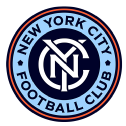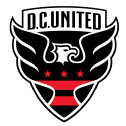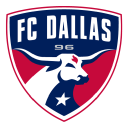Data predicts the best, worst and most watchable 2022 MLS teams
Ale Moreno shares his thoughts on who will be the player of the season in Major League Soccer. (0:51)
For better and for worse, Major League Soccer is the ultimate “zig when they zag” soccer league. Instead of the typical August-to-May schedule, it goes from February to November. Instead of the customary 18- to 20-team league with round-robin scheduling and relegation, it just keeps on adding teams to the first division. (Hello, Charlotte FC, the league’s 28th new team. See you in a year, St. Louis.)
Capped spending in MLS means that it ends up with few standout teams, good or bad — it’s got plenty of Tottenhams and Crystal Palaces, but few Manchester Cities and Norwich Cities, if you will. While it does have the same chaotic, single-elimination FA Cup-style national tournament running throughout the league (the U.S. Open Cup makes its triumphant return at the end of the month after a two-year break due to the coronavirus pandemic), it also packs the most American of flourishes to the end of its season: a single-elimination playoff tournament that tends to assure that the league’s best team doesn’t actually win the league.
MLS is raucous, weird and increasingly well-followed, and it doesn’t follow the accepted rules that soccer tends to set. Its 27th season has only just begun, so let’s set some expectations for 2022.
– MLS on ESPN+: Stream LIVE games, replays (U.S.)
– Soccer on ESPN+: FC Daily | Futbol Americas
– Don’t have ESPN? Get instant access
Last season, the five best teams of the MLS regular season were the New England Revolution (2.1 points per game), Colorado Rapids (1.8), Seattle Sounders (1.8), Sporting Kansas City (1.7) and Portland Timbers (1.6). None won the MLS Cup.
In 2020, there was a different top five: the Philadelphia Union (2), Toronto FC (1.9), Sporting KC (1.9), the Columbus Crew (1.8) and Orlando City (1.8). The Crew won MLS Cup. The year before that, it was Los Angeles FC (2.1), New York City FC (1.9), Atlanta United (1.7), Seattle (1.7), and Philadelphia (1.6), and again none won the MLS Cup.
The top of the league sees almost total turnover from season to season. Anyone can seemingly go from bad to good — or, in the case of 2020 MLS Cup winner Toronto last season, good to bad.
This point is reinforced by the current MLS title odds derived from FiveThirtyEight’s SPI ratings. In Europe, PSG began the season a 70% favorite in Ligue 1, while Bayern Munich was at 59% in the Bundesliga and even Manchester City was at 40% in the Premier League. But in MLS, no one started out higher than 15%. Two weeks in, there are now 12 teams between 4% and 13%. That’s nearly half the league! But in MLS, no one started this season out higher than 15%. Two weeks in, there are now 12 teams between 4% and 13%. That’s nearly half the league!
Among SPI’s favorite MLS teams, here are the five I trust the most to top the table (and then lose in the semifinals, probably) this season.
 New York City FC
New York City FC
Let’s start with the reigning champs. Including the playoffs, NYCFC had the best expected goal differential in the league, but dreadful close-games luck tamped their point total down. Even including the playoffs, they won just seven of 27 matches decided by zero or one goals and averaged 1.2 points per close game.
They had the best goal differential in the league over the first 60 minutes, but gave up a few too many equalizers down the stretch. New England averaged 2.1 points per close game and ended up 22 points ahead of NYCFC in the overall table.
As it turned out, NYCFC was just saving its good bounces for the postseason, beating Philadelphia with an 88th-minute goal and taking down New England and Portland in penalties — despite allowing late equalizers in both matches — to win MLS Cup.
If you squint just right, then, the best team potentially did win the league, even though it finished fourth in the Eastern Conference. They are the only team in the top 150 in FiveThirtyEight’s global SPI ratings, after all. They’re 142nd, between Danish heavyweight Midtjylland and the Premier League’s relegation-threatened Norwich City, and they started out as a 15% MLS title favorite.
NYCFC had not only the best xGD last year, but also the best goal scorer in Taty Castellanos, who remains with the team despite plenty of transfer rumbles. They took plenty of shots while allowing the second-fewest per possession. They were maybe the best team in the league on set-pieces and in a league dominated by transition goals, they were among the best at preventing them.
This league might not have sure things, but NYCFC is at least the least unsure to start the season. They’ve begun the season with a draw, a loss and zero goals, but their CONCACAF Champions League form — an easy 6-0 cumulative win over Costa Rica’s Santos de Guapiles and a 3-1 win over Guatemala’s Comunicaciones in the opening leg of the quarterfinals — suggests there’s nothing much to worry about just yet.
 Seattle Sounders
Seattle Sounders
Like NYCFC, Seattle is a team for whom it’s probably best to ignore its early form. The Sounders have suffered 1-0 losses to Nashville SC and Real Salt Lake to open 2022, but they trounced Mexico’s Leon 3-0 in the first leg of the CONCACAF Champions League quarterfinals, and their upside appears immense. The Sounders were third in the league in points per game and fifth in xG differential last season, and they got exactly zero goals, one assist and a combined 654 minutes from injured stars Jordan Morris and Nico Lodeiro.
Granted, this was not the first time either one has battled the injury bug in recent years, and we’ll see what they can contribute now that they’re back in the rotation. But if Seattle was good enough to finish second in the Western Conference without them — and without Albert Rusnak, who scored 11 goals with 88 chances created (fifth in the league) with Real Salt Lake last season before joining the team in January — then one assumes they’re in even better shape with those players. They have already combined for three goals and 16 chances created in five Champions League matches.
Seattle is the most consistent club in a league bereft of such a thing. They have finished no worse than fourth in the Western Conference in each of their 13 seasons, and while not even the Sounders are immune from a playoff upset — they fell in penalties to Real Salt Lake in the first round last fall — they advance pretty far as often as not. They allowed the fewest goals per match last season, and while their attack was often directionless (19th in MLS in shots per possession, 11th in xG per shot) and hasn’t exactly begun this season in torrid league form, Rusnak and semi-healthy versions of Morris and Lodeiro should address that over time.
 Los Angeles FC
Los Angeles FC
Any team in this league can see its stock surge in one direction or another from year to year, and if a team is likely to go from missing the playoffs in 2021 to challenging for the top spot in 2022, LAFC is probably the best candidate.
LAFC was second in the league in xG differential (+0.64 per match) but missed the playoffs by three points thanks to a combination of New York-style poor close-games luck and downright poor defending. Unlucky or not, they were 21st in pre-shot xG allowed per shot, and a distant 27th in post-shot xG allowed for shots on target. It’s not a coincidence, then, that they also ranked last in save percentage. If you got a shot off against LAFC, it was probably a really good one.
The team rebounded late: After pulling just 23 points from their first 20 matches, they ran off 22 in their last 14 and nearly stole a playoff spot before a 5-2 loss to Colorado in their final match. Still, they missed out on the postseason and parted ways with manager Bob Bradley. Steve Cherundolo, the longtime U.S. national team fullback and, in 2021, manager of the USL’s Las Vegas Lights (LAFC’s USL affiliate), takes over.
Cherundolo has reinforcements. To address its deficiencies in defensive transition, Kellyn Acosta — the best defensive midfielder not named Tyler Adams in the U.S. player pool — from Colorado, plus fullbacks Franco Escobar (Atlanta) and Ryan Hollingshead (Dallas) and another defensive midfielder in Ilie Sanchez (Sporting Kansas City). With forwards Carlos Vela and Cristian Arango still up front, this squad could have the balance it desperately lacked a year ago. It has certainly started out on the right foot, generating 4.7 xG to opponents’ 1.0 and getting three early goals from Vela.
They certainly have the upside: SPI gave LAFC an 11% chance to win the title at the start of the season, the second-best overall odds. Those odds have risen to 13%, same as NYCFC’s, two weeks in.
 Philadelphia Union
Philadelphia Union
As difficult as it may be to remain near the top of the table from year to year, the Union have come as close as anyone over the past two years. They won the Supporters Shield in 2020 before losing to New England before a first-round playoff upset, and if their roster hadn’t been hit particularly hard by a COVID-19 outbreak in early-December, they might have topped NYCFC in the Eastern Conference finals. Even with a shell of a roster, they didn’t succumb until Talles Magno‘s 88th-minute goal sent New York City to MLS Cup. They’ve started 2022 well, pulling four points from two matches while nearly doubling opponents’ xG totals, 3.0 to 1.6.
The roster remains mostly intact from last season, and it’s one of the most interesting rosters in the league, packed with both extreme veteran ranks — of the 10 players who logged more than 2,000 minutes last season, six were at least 27, led by 34-year-old captain Alejandro Bedoya — and a wealth of flittering youngsters. Defensive midfielder Leon Flach (21 years old) was the only youngster who logged major minutes in 2021, but midfielder Jack McGlynn (18), attacking midfielder Paxten Aaronson (18) and forward Quinn Sullivan (17) combined for not only 1,942 minutes but also five goals and 31 chances created.
Alejandro Moreno details the importance of the signing of Hector Herrera is for the Houston Dynamo and the rest of the MLS.
In StatsBomb’s On-Ball Value measure — an attempt to measure the importance and value of every event in a match, not just shots, chances created, etc. — McGlynn (because of his passing) and Sullivan (because of shot creation) were already top-5 on the team on a per-minute basis. Throw in the work of left-back Kai Wagner (25), and you’ve got an exciting young core. That’s doubly true if new forward Mikael Uhre can eventually replicate the efforts of Kacper Przybylko (now with Chicago) up front. He’s played only 22 minutes thus far but managed two solid counter-attacking shot attempts against Montreal in those minutes.
 New England Revolution
New England Revolution
If we were to create a “Most Likely to Regress” list, two teams would probably top it: New England and Sporting KC. The latter boasted by far the biggest difference between xG differential and actual goal differential, thanks at least in part to the finishing of Alan Pulido, who underwent knee surgery last month and is out indefinitely. And as mentioned above, the former sure did win a lot of close games.
That close-game formula could get a stiff test from impending departures. Matt Turner, likely the best pure shot-stopper in the U.S. player pool — and an awfully convenient thing to have in close games — has missed the start of the season with a foot/ankle injury and is heading to Arsenal this summer. It’s quite conceivable that forward Adam Buksa, one of 2021’s breakout stars (17 goals, four assists), heads overseas with him. Winger Tajon Buchanan (nine goals, five assists) has already left for Belgium‘s Club Brugge, as well.
Granted, Bruce Arena’s squad has begun the season with four more close-game points — a 2-2 draw with Portland, a 1-0 win over FC Dallas. But for a team that allowed nearly as many shots as it took and thrived in tight situations, losing difference makers at the front and back of the lineup is awfully scary even if the team did bring in veteran scorer Jozy Altidore.
The Revs still have the services of the most creative player in the league (Carles Gil, with his 136 chances created in 2021), not to mention those of Arena himself. That alone makes them a threat. But it’s difficult to give the team wonderful odds of winning the Supporters Shield for a second straight year.
This being MLS, plenty of other teams could surge to the top of the league.
Nashville SC nearly enjoyed a massive breakthrough in its second year as a franchise, but was held back by an addiction to draws — 18 of them in the 34-game regular season and then another, which resulted in a penalty shootout loss, in the second round of the playoffs. Portland is always talented and feisty (if a little old). Ditto, Sporting KC. The New York Red Bulls are incredibly dangerous if they actually start putting the ball in the net, and it’s worth acknowledging that second-year Austin FC has begun the season with six points and 10 goals (!) in two matches. Atlanta United SC made some huge talent investments this offseason too, but those are the five teams I feel most comfortable with at the moment.
One thing about not having any genuinely dominant teams is that you don’t end up with dominant styles of play either. With no huge talent advantages — and the general, possession-heavy style that tends to emerge from such a thing — and with no fear of relegation, teams can simply try stuff. The New York Red Bulls take pressing to a new level. Sporting Kansas City asks its defenders to carry the ball forward more than anyone rationally should. Atlanta United SC moves as horizontally as possible, while the Portland Timbers want to slice you up in transition.
Aside from the teams above, here are four more teams that are particularly interesting and/or entertaining stuff-tryers in the league, whether said stuff actually works or not.
 New York Red Bulls: sound, fury and, in 2021, very few goals
New York Red Bulls: sound, fury and, in 2021, very few goals
Major League Soccer is here! Coverage of all 28 teams with live games, replays, highlights.
Sign up now to stream soccer on ESPN+
SATURDAY, MARCH 12
• NYCFC vs. Montreal (1 p.m. ET)
• Columbus vs. Toronto (1:30 p.m. ET)
• Houston vs. Vancouver (6:30 p.m. ET)
• D.C. vs. Chicago (7:30 p.m. ET)
• New England vs. Salt Lake (7:30 p.m. ET)
• Orlando vs. Cincinnati (7:30 p.m. ET)
• Philadelphia vs. San Jose (7:30 p.m. ET)
• Dallas vs. Nashville (8:30 p.m. ET)
• Colorado vs. Kansas City (9 p.m. ET)
• Portland vs. Austin (10 p.m. ET)
SUNDAY, MARCH 13
• Red Bulls vs. Minnesota (7 p.m. ET)
The league’s two New York teams are each sister clubs of European giants and while NYCFC occasionally takes on the possession-heavy tint of Manchester City, there’s no doubting that, 20 miles away in the New Jersey suburbs, the New York Red Bulls are a Red Bull squad. Gerhard Struber’s team absolutely bullied opponents from a pressing standpoint, allowing 8.2 PPDA (or passes allowed per defensive action, a measure of overall pressure). That pressure started 11.5 possessions per match in the attacking third and allowed opponents to finish only 29% of possessions in the attacking third. The Red Bulls ranked first in the league in all three categories, and they also averaged 113 possessions per match, by far the most.
This is a furious and aggressive team, and they nearly missed the playoffs because it could neither create nor convert quality shots, and they sometimes got ripped apart by counter-attacks as heavy-pressure teams tend to do. Forwards Patryk Klimala and Fabio Gomes turned 23.6 xG into only 15 goals, and while new addition Luquinhas, from Legia Warsaw, is a high-level passer and ball-handler, he doesn’t seem to add much from a shooting perspective. (He also has yet to make his debut.)
But hey, that only matters if you actually have a rooting interest. The Red Bulls will be incredibly fun and intense, even if they aren’t actually good, and thanks in part to three early goals from another new acquisition, Scottish winger Lewis Morgan, they’ve been great thus far, beating San Jose and Toronto by a combined 7-2.
 D.C. United: The watchability all-stars
D.C. United: The watchability all-stars
Only one team in the league both averaged at least 1.6 goals and allowed at least 1.5 in 2021: Hernan Losada’s D.C. United, who won matches by scores of 7-1, 4-2 (twice), 3-0 (twice) and 3-1 (three times) and lost by scores of 3-2 (three times), 3-1, 4-1, 5-2 and, late in the season, 6-0.
They missed out on a playoff bid by one point, then lost midfielder Kevin Paredes (Wolfsburg) and winger Paul Arriola (FC Dallas). Incoming fullback Brad Smith could help with defensive stability, and on-loan striker Michael Estrada could bolster the attack, but either way, expect this team to go full-throttle — in one direction or the other. Their first two matches, wins over Charlotte FC (3-0) and Cincinnati (1-0), have produced quality defense, but we’ll see if it lasts.
 Austin FC: Everyone gets a shot!
Austin FC: Everyone gets a shot!
Say this much for the Fightin’ Matthew McConaugheys: They are enthusiastic. Things happened in their matches last season, even if a lot of those things were bad.
In their first year as an MLS franchise, Austin both averaged a league-high 0.16 shots per possession and allowed a league-high 0.18. A lot of these shots were of particularly low quality — no one averaged fewer actual goals per match — but as is the case for a lot of Liga MX teams, they insisted on taking their chances, no matter how remote. New addition Maxi Urruti, most recently of Houston, might add some shooting punch, but he averaged only 0.08 xG per shot last season, so we’ll see if he adds scoring punch.
Austin has begun this season in torrid form, pummeling Cincinnati (5-0) and Inter Miami (5-1); they’re overachieving their underlying xG figures dramatically — nine goals scored (minus an own goal) from only 4.4 xG — but they are third in the league in xG per shot in the early going. Combine quantity with quality, and you’re a team worth watching.
 FC Dallas: player development kings (who never benefit from it)
FC Dallas: player development kings (who never benefit from it)
From what I call “transition possessions” — possessions beginning in your defensive or middle third and lasting fewer than 20 seconds — only one team (Sporting KC) scored more goals than Dallas in 2021. Attacking midfielders Jader Obrian, Jesus Ferreira and Paxton Pomykal combined to attempt nearly 16 ground duels per match, and when they won one (they won 61% overall), Dallas was off to the races.
Then they sold forward and leading scorer Ricardo Pepi to the Bundesliga’s Augsburg — just as they sold defender Bryan Reynolds (Roma) and midfielder Tanner Tessman (Venezia) last year, and Chris Richards (Bayern Munich), fullback Reggie Cannon (Boavista), midfielder Carlos Gruezo (Augsburg) and others before that. Juventus‘ Weston McKennie came out of the celebrated FC Dallas Academy, too, but it’s been a while since Dallas turned this precocious talent into actual wins.
Since winning the MLS Supporters Shield in 2016 (and proceeding to reach the semifinals of the CONCACAF Champions League the following year), Dallas has missed the playoffs in two of five seasons and advanced past the first round only once. Even with Pepi last season, they finished 11th in the Western Conference because of a porous defense.
They will undoubtedly produce more exciting youngsters in the coming years. Though not an academy product, 19-year-old winger Alan Velasco arrives from Independiente this season (he will make his debut soon), and players aged 23 and under have played 50% of their minutes thus far. But we’ll see if it actually translates to quality depth and another playoff run at some point.
.jpg)